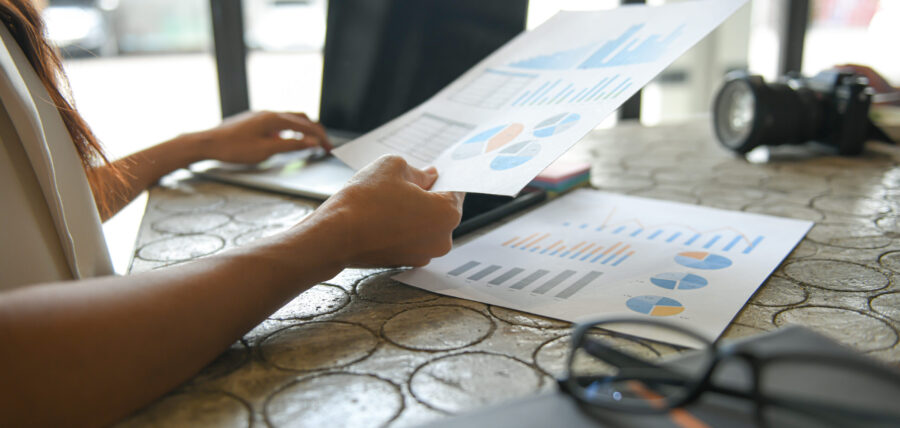COVID-19 has been and continues to be a challenging and pivotal moment for our mental health and wellbeing. Not only have we had to change our routine (or lost it entirely), we’ve had to give up our social lives, adapt to new work settings and motivate ourselves to do home workouts. So what did we learn about workplace mental health in 2020?
It Is Better to Be Proactive Than Reactive
Workplaces that had already implemented a healthy successful mental health plan presumably had an influx of interest over the last 12 months than ever before. Whilst businesses that were yet to formulate a plan, likely found themselves being reactive to their employees’ needs.
Being proactive prevents future mental illness, burnout and financial strain from arising. Whereas a reactive approach can often be messy, misunderstood, and often exacerbate symptoms. A proactive approach also enables employers to help reduce the stigma surrounding mental health within the workplace.
Diversity vs Employee Mental Health
The year 2020 saw a rise in business changes for diversity in the workplace. Following the death of George Floyd, the world’s need to act on racism grew profoundly that left many business leaders in a state of immediate action.
However, diversity doesn’t exist solely for the prevention of discrimination against current employees, it also branches out to the company hiring processes that must be free of bias. Furthermore, companies have recognised the change that needs to come with neurodiversity for those with ADHD, Autism, and Dyslexia. Cognitive diversity can provide significant value in workplaces but such deficits come with stigma and individuals are often heavily judged on their abilities during the hiring process. With this comes a new wave of workplace diversity that is likely to rise and continue to support employee wellbeing.

To Live One Day At A Time
Throughout the year, we tend to give ourselves breaks and moments to look forward to. This might be a holiday or taking time off to do something we enjoy. However, with very little freedom it’s been difficult to plan or utilise our paid time off in the way we’d wish. When you’re living life in the fast lane with a ‘busy’ diary, we often don’t have time to sit with our thoughts. Whilst distractions can be good, taking the time for our mental health is important and provides the sense of freedom that being ‘busy’ all the time doesn’t.
Living in the present moment is something we’ve all learnt to adjust to. The reality we are living in has, and can, affect us all in different ways, which can be quite overwhelming. With very little in our control, we’ve found that looking after our mental health and our most basic needs in the here and now gives us the control we don’t have over the outside world. This might be turning off your computer at 6pm or allocating commuting time to workout before you begin work.
Work Can Be A Source of Good Mental Health
If workplace stress and anxiety can be mitigated, our careers can be a source of good mental health too. Work gives us a sense of purpose, social life and our identity. In 2020 anyone faced with redundancy has had to seek the aforementioned elsewhere.
Whilst work is important to many of our needs, (financial or social) it is equally important to maintain a good work-life balance in ensuring work doesn’t overtake or rule our personal lives. Workplaces where leaders provide empathy and compassion for their employees’ harbour happy workplaces full of trust and hope.
A Moment Of Reflection
For some of us, the last 12 months gave us the breather we all craved. Nowhere to be, nothing to do or anyone to be. In particular those with pre-existing mental health issues felt as though the world was experiencing their reality.
With each of us in our own form of self-isolation, the period of immense forced self-reflection has allowed us to not only understand ourselves better but also others around us. In a pre-COVID-19 world, many of us may have felt the need to act in a certain way, keeping us stuck in unhealthy behaviours. Negative actions in the workplace can lead to toxic and unhappy environments.

The Importance of Downtime
If we weren’t making banana bread we were likely gardening. Adjusting to a new way of living is no easy feat, however we learnt to be creative and appreciate the time to take up a new hobby or just do nothing. From spending more time in nature to delving into daily home workouts, the mind-body connection has likely strengthened for many, along with self awareness.
Poor mental health may lead to poor physical health, and our lifestyle factors might contribute, along with our biological and chemical makeup. We can all agree on managing mental health can’t be achieved through meditation alone, it requires a more holistic approach that employers have likely recognised through personal experience and observation.
Our mission at Everymind at Work is to normalise the conversations around mental health in the workplace. Our training, webinars and app are all at your disposable to support your employees’ mental health. You can find more information here.








